
Бесплатный фрагмент - Tum hi ho | Only you
The love story based on real events
Электронная книга - Бесплатно
I thank friends, relatives and colleagues for the help, support and belief in our love!
LIVE TODAY. LOVE NOW
I’d been meaning to write our story for a while but I never dared to. Even though I think some people might find it useful. After all, sometimes it actually doesn’t take that much to make a first step. For example, to stop being afraid of closed doors, but instead, try opening them — perhaps, there is a beautiful world behind them, as beautiful as Incredible India.
— Hello, I’m Inna.
— Hi, I’m Vishnu.
Two people beamed at each other, and a moment of silence followed by. This is how it all began: the love of an Indian boy from Varanasi and a Russian girl from Moscow.
***
My way to India was long, complicated and thorny — the more interesting. I’d never intended to specifically go there — except later, but until then there were around 15—20 trips to other countries ahead of me. India seemed to be unknown, bizarre, strange — and possibly dangerous to life and everything else (it seems unbelievable now that I think about it). It is true that many people think that the words «India» and «civilization» can hardly combine in one sentence. The only sure way to find out how wrong it is — is to go there.
My friends invited me to join them to go to India to embrace adventures many times: going to Goa, to the sea, to inhale freedom, rushing on a bike along the Arabian coast. And every time I almost agreed, something would stop me, and at the very last moment I’d leave for Europe (or Thailand) instead. I guess it wasn’t the time yet.
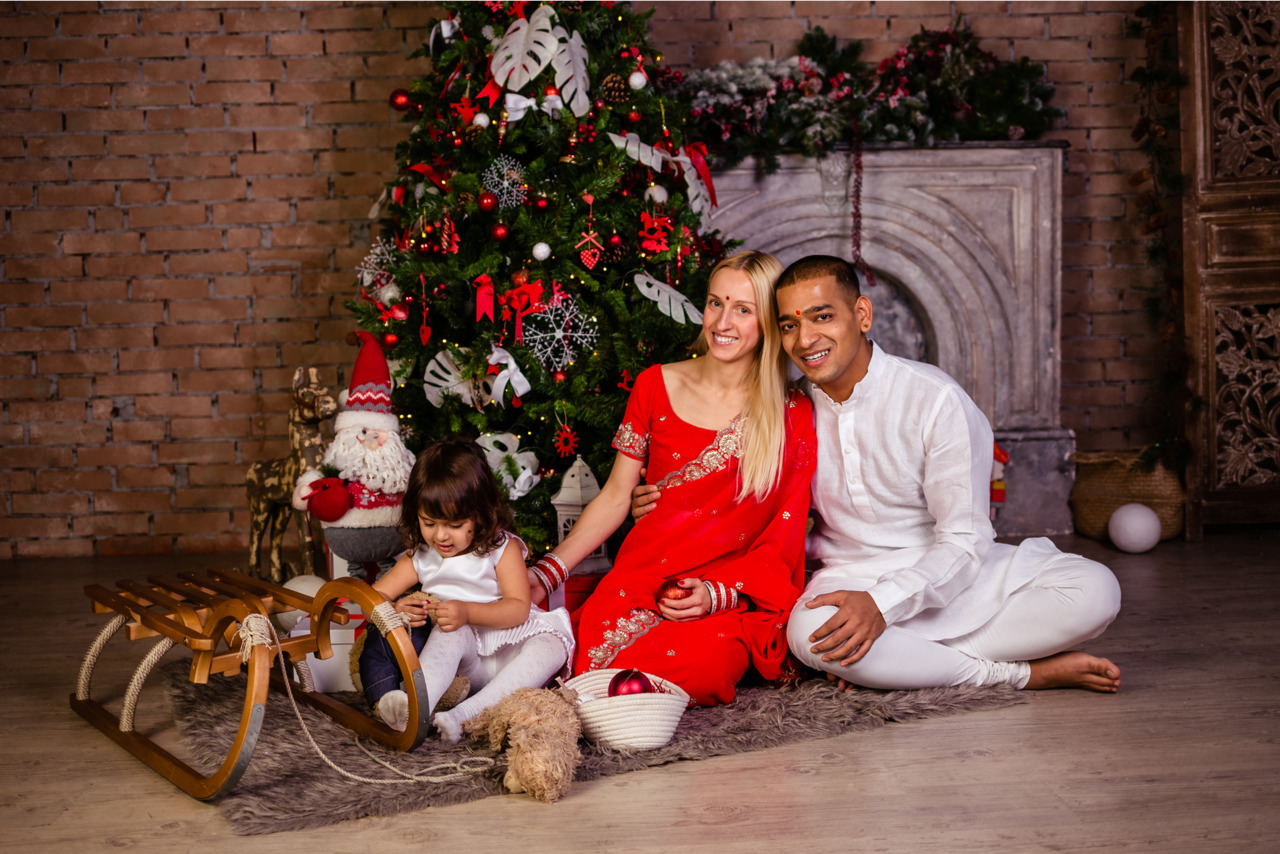
THE SUMMER OF 2013. MOSCOW
I worked as a head of PR-direction in a large publishing house in Moscow. It was absolute external well-being: interesting tasks, excellent team, good salary. However, still being a student at my heart, one big dream wouldn’t leave my mind: working in a digital creative Agency. And then, as if by magic, everything falls into place: after a series of a few not too complicated interviews, there I was, landing a job at one of the best places one can wish to work at. The latter meant multi-million global brands projects, parties on the summer terrace, interviews in the fashion media, amazing colleagues — hipster Smak capital, all I ever wanted. Fascinating, beautiful, very easy.
Nevertheless, as you know, there are two sides to every coin. Just like in the film «Duhless» with Danila Kozlovsky, there is always a lot of communication going on, a lot of work, constant deadlines, a lot of things that need to be done right now or, rather, you wanted them done yesterday.
Drastic times call for drastic measures, and one of them is finding yourself, your way, a new meaning, perhaps, in the least expected places. One way to do it, among many others, is to escape the crazy creative capital city.
One day, a young man from the SMM-Department (we were good friends, who not only worked together, but also could always have a heart to heart conversation) resigned. He had a ticket to Bali and then to India. As we kept in touch, he shared his adventures with me: he sent some photos, told warm stories about local cities and their traditions. He also told me that he really wanted to stay in India for the whole winter, and he recommended some books and movies, which I eventually watched, read and got very interested in.
In one of the letters he wrote: «Innok, why don’t you take a vacation in October and come over. I’ll show you Agra, Humpy, Mumbai and Gokarna. And Varanasi.
Especially now, it’s Diwali time, you can’t miss it.» Google helped me: it turned out that Diwali festival in Varanasi is like New year’s eve celebration in Russia. Google helped with other cities too: unfamiliar names revealed the beauty and grandeur of an unknown country. The main idea was skipping the typical holiday by the beach, and instead, getting acquainted with India from the inside by travelling by local transport, going off the beaten track, and having a knowledgeable person to guide me through. So, I had three weeks off and I was looking forward to going there, feeling very curious.
THE FIRST ENCOUNTER WITH INDIA. AUTUMN 2013
India welcomed me warmly, literarily: coming out of the plane in new Delhi, I stepped on the carpet. No kidding, a real carpet. I think it was then when I realized that everything was going to be fine.
The journey began in Rishikesh-perhaps the most famous city among yogis (and not only) on the banks of the Ganga. I went to my first yoga practice, and there we met some cool guys from Russia, with whom we would travel further. We travelled to the Ganga, listened to mantras, ate local dishes (all of which are very spicy, even those that don’t look like they have anything in them). During one of the sessions, an old man made music using Tibetan bowls, it felt like he was doing magic: first, the music rings through your body, and then the man kindly tells you about your life (how could he possibly know all this?!) and about your destiny. That’s like Ketut Liyer from «Eat, pray, love», only better. I was at a crossroads then. I knew that to find peace of mind, I needed to change something. For example, country. I asked him, «Where should do I live? "He looked surprised: «Where? Here in India, of course.» I only gaped at him. Everyone in our group asked him questions, but he did not give his answers as clearly and firmly as he did to me (probably left some room for manoeuvre, as all the wise men and the soothsayers would). Smiling but skeptical, the guys and I went to the Bank of the Ganga, getting a cup of spicy masala tea on the way. (The latter, by the way, in the first two days in India was almost my only food: it was the only thing that didn’t leave burning feeling on my tongue and cheeks.)
The next day we were headed to Varanasi, and Diwali festival was about to start. On the way to the night sleeper-bus guys said that the city of Varanasi was the same age as Babylon, and that it was the only one in the world that was more than five thousand years old, meaning that whilst Babylon is now mostly flattened ruins (and the not the most exciting or picturesque ones), Varanasi, on the contrary, is a city that truly lives. And once you are there, you realize that it will easily live to be five thousand years older or even more.
Varanasi is a sacred city for Hindus, much like Mecca for Muslims. Everyone wants to visit it, and even better — to make a circle of samsara there, having their ashes scattered on the waters of the Ganga. Yes, here for many centuries every day (around the clock!) they burn the bodies of the dead. I, a tourist, was a little scared then. My friends calmed me down-they told me not to worry, and promised that a local photographer, that they’d found through Couchsurfing, was going to meet us in Varanasi to show us around the city. «Well, if it’s a local, I guess I’ll be interested», I thought to myself. We arrived in Varanasi in the afternoon. When we checked in at the guest house, one of my friends said that we were to meet Vishnu, the said photographer from Couchsurfing — he was going to take us for a walk and then to watch the ritual of Puja.
There was a knock at the door. I don’t usually open it right away (neither in Varanasi, nor in Moscow, nowhere), but then the door, as it seemed, itself, swung open. The first thing I saw — an amazing white smile, which could only make me do the same- smile back. We stood in the doorway for a minute. Then it dawned on me that it was probably about the time to introduce myself.
— Hello, I’m Inna.
— Hi, I’m Vishnu.
Of course, I almost immediately forgot his name, and then sometimes called him Krishna, he laughed. And I remembered his broad smile, his deep brown eyes, he was wearing black-rimmed glasses and a bandana.
It must have been love at first sight.
We went for a walk around, overwhelming for me on that day, Varanasi. Vishnu was always around and asked me a lot of questions about my life: where I lived, what I did for living, what major I had. And he didn’t seem to take his eyes off me. Then he told me that it was the first time he got to meet a Russian fair-haired girl, he was captivated by both appearance, and internal beauty. And for me, Vishnu was the first Indian I got to meet. Our «national enchantedness» by each other could probably be called something like a mutual pleasant culture shock.
On that memorable day, going to Diwali celebration, I was so impressed with what was happening that I even forgot where Vishnu was from. And then I asked him:
«You’re from the US, aren’t you?» He laughed a lot:' No, I’m a local, I live here’. Many people think that all Hindus speak English like Rajesh Koothrappali from «The Big Bang Theory», but Vishnu had no accent, so it made me think that he was from the USA. Only then I found out what a traditional family he was from and who his parents were.
After walking along the main street and watching evening Puja ritual, Vishnu offered to go to a cafe, climb to the roof top and listen to the tabla — a kind of a drum, an Indian national instrument. That time everything was new for me — from sounds and smells to emotions and people.
We sat on the pillows on the floor (it is quite a common thing for Indians — Vishnu says, this way more guests would fit in). He sat facing the musician and with his back to me, it felt as if Vishnu — so kin, familiar and close, had always been there (perhaps it is true — we could have known each other in our past lives, and now we simply have met again).
After the concert and a lovely walk through the old town we returned to the hotel. I certainly couldn’t sleep that night. First, the Diwali celebration was in full swing: with all the boys and girls around celebrating all night long, starting firecrackers, blowing up petards over Ganga, fireworks lit up the skies and all the sounds and the lights were like a colourful rain falling down. And secondly, I couldn’t help thinking about Vishnu. «Inna, have you fallen in love?! And with whom? A Hindu? No, don’t even think about it, you seem to have lost your mind,» I was convincing myself. After all, I have known him for just a few hours (since Diwali is a family holiday, it was natural that we didn’t get to spend a lot of time with Vishnu on that day). As it seems, after all, you can’t escape your destiny and even though a few hours don’t feel like a lot of time it may, in the end, be enough.
The next day we decided to see the sunrise on the river: take a boat to get to the other sandy beach of the Ganga, to sail and watch how the «Golden Apple», the sun, is rising above the waters. At about five in the morning Vishnu picked us up at the hotel and took us to the boat station. He helped me to get on the boat. With his every touch (rather innocently, only meaning to give me a hand to get on the boat) I felt how fondly he treats me, how he tries not to make a mistake, being afraid that I would perceive his actions as something inappropriate. A few moments into the boat, the boatman’s son, a seven year old boy, hopped in, and Vishnu all of a sudden started to beatbox, and everybody around, clearly appreciating his beatboxing skills, joined in the jam, each in their own way.
All the way through our journey Vishnu took pictures of me, and I even felt a little embarrassed in front of the others.
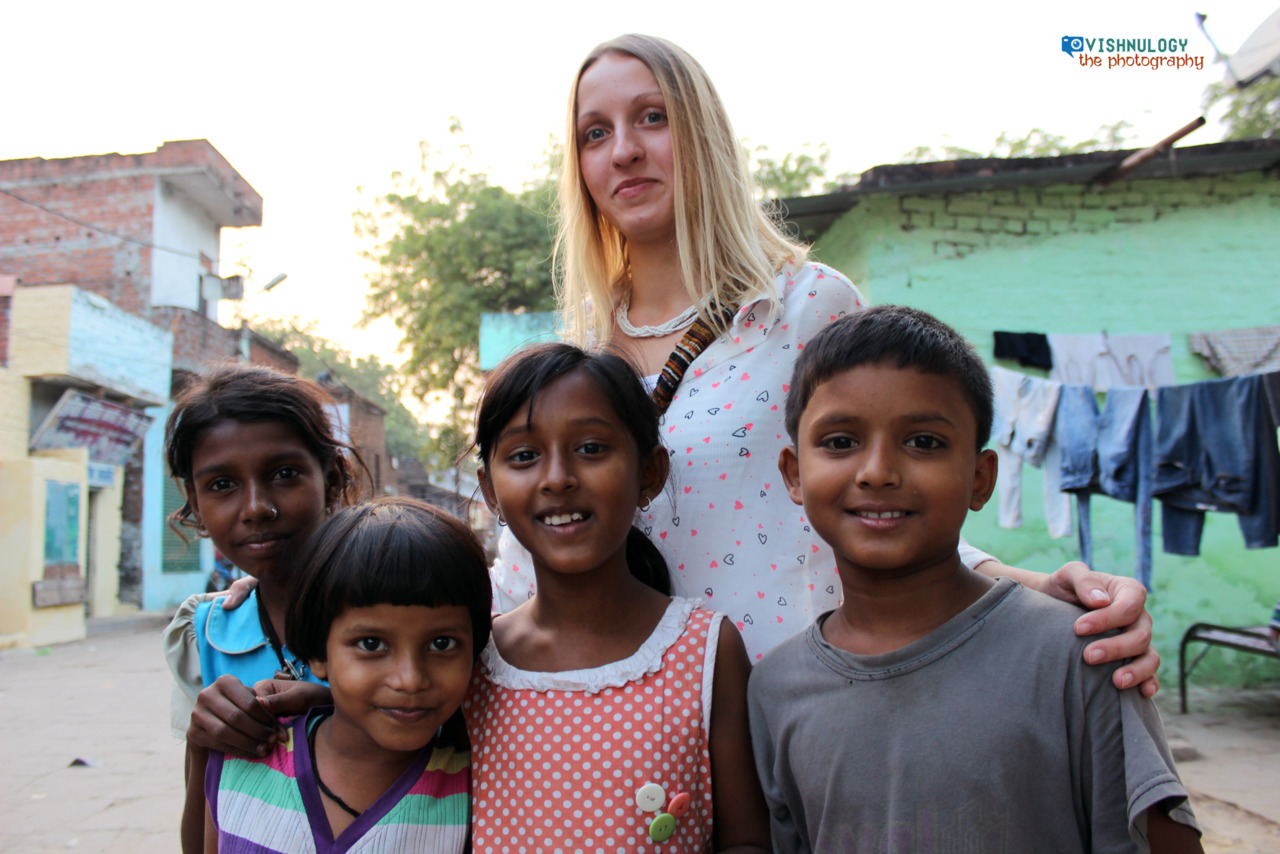
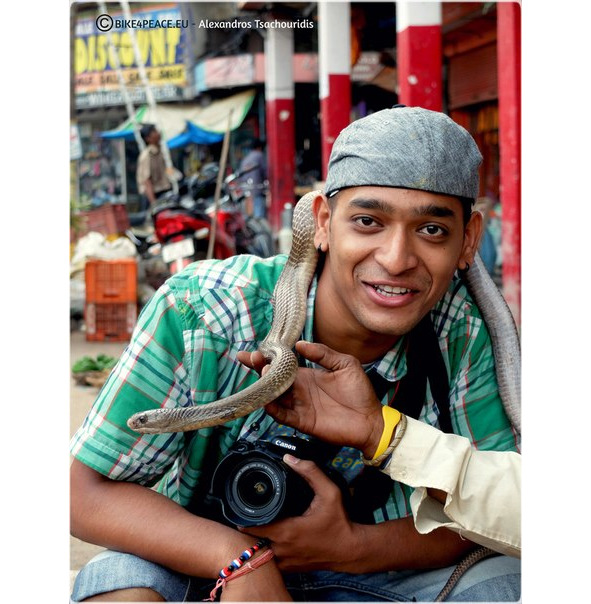
After that, my friends and I continued our journey, and a week later I returned home, to Moscow. We agreed that we would definitely return to India for the New Year’s to celebrate it in Goa. I bought round-trip tickets almost immediately. Winter holidays and the continuation of the wonderful adventures were only a month away but I was in for a surprise.
Back in Moscow, everything went back to normal, of course, and I was sucked into my busy life immediately but memories of India (and especially about the two days in Varanasi) made me get in touch with Vishnu first — under the pretext that I am looking forward to getting the photos of the Ganga. He replied quite promptly and sent the pictures. We began to correspond periodically-we would talk about anything, it was simply pleasant (and we really felt like it) to stay in touch.
The thought of having tickets to India warmed me in the uncomfortable Moscow, but just a week and a half before the New Year’s my friends said they had to change their traveling plans. What was there for me to do? Going there on my own? But then I don’t know much about this country, let alone Goa. Nobody seemed to be able to join me for this trip, and the tickets were non-refundable. I asked Vishnu if he could help with refunding tickets for the local flights. And here’s a coincidence: he and his friends from Germany were planning to celebrate New Year’s in Goa, but they also, literally at the last moment, had to change their plans. «I’ve never been to Goa, but I’ve always dreamed to go there. I’ve already bought the tickets to Vasco da Gama, I am arriving on the 29th of December… you know what? Let’s go together? I will meet you at the airport,» he wrote.
I didn’t know what to do then. I wanted to celebrate the New Year’s by the sea, alone or with Vishnu who I became rather fond of! But, on the other hand, I did not know him at all, besides, he was a foreigner… Fear outweighed: I decided that I was not going anywhere, and even handed over my ticket from New-Delhi to Goa, even though I still had my tickets to go New-Delhi. Meanwhile, Vishnu continued talking me into coming along:
«Don’t worry and don’t be afraid. If you suddenly find it uncomfortable being in my company, I’d understand it, and you would just continue having rest on your own».
Once my mother and I were walking around Moscow. Sitting in a cafe, I shared my thoughts with her, and told her about the tickets I still had, and my thoughts of going to familiar places if it wasn’t Goa. I told my mum about my encounter with a young man, a Hindu, from Varanasi, whose holiday situation was similar to mine, and who was eagerly talking me into coming to India for the winter holidays to enjoy rest and the ocean. My mom asked me to show her a picture of him, and I opened my Facebook. As soon as she saw him, she said: «A good guy. Go and have a great week, relax, get away from everything!» I made up my mind. I messaged Vishnu, and told him that I was coming, and asked him to help with local tickets. He was very happy and did everything the same evening. So preparations for a totally adventurous trip began.
The following week and a half we talked every day — it seems, we just couldn’t go without writing to each other.
MAGIC OF THE INDIAN NEW YEAR’S EVE. GOA. 2013/2014
I had three connecting flights on my way to Goa: first from Moscow to Astana, then to New-Delhi, and then to Goa. After nine hours on the plane I found myself in New-Delhi. Despite the delay, I had an hour and a half before my next flight (and I couldn’t even imagine then that that time might not be enough).
Going down to the passport control on the escalator in the air-port named after Indira Gandhi, I saw the famous statues of mudras (mudras are special ways to hold one’s hands, where each one has its own purpose and meaning). Looking at them, I looked forward to being back on the beautiful land, which had already given me so many surprises. Little did I know, I was just about to face a new challenge: after the passport control, I couldn’t find the right signs showing how to get to the Domestic flights. Frantically running around the airport, trying to find out something from the staff, I was running out of time. There were 40 minutes left before my flight, but there was no wifi connection and access to the Internet. Will Vishnu wait for me if I’m late? At this point I was very scared that we won’t see each other — I broke down and cried. I’m already here in India, but so far away from him. Were we not to meet again because of some ridiculous accident?!
As I was sitting and crying, feeling almost desperate, one of the airport staff came up to me and asked me if I was ok and if he could do something to help. I told him that I flew from Moscow, and that there were 30 minutes left before my flight, but I didn’t not know where to go. He smiled and said that the local planes depart from another airport, a few kilometers from the international one: «Run, catch a taxi, you still have the time. Good luck!» Having wiped off my tears and having put on my backpack, I dashed out of the airport, grabbed the first car and offered the driver 20 dollars (as it turned out later, it was 10 times more than a trip like that would actually cost, but then it didn’t matter to me — as long as he would get me where I needed to be). Road traffic in India is specific: it is common to honk loudly, overtake and cut, even if you are the driver of a small but proud scooter, and there’s a crowded bus or truck in front of you. Locals are comfortable with this though- no one takes offense, and no Navigator seems to be able to really estimate the time of your journey. Although the driver was already going pretty fast, I asked him to speed up: faster! Faster!
I arrived at the airport 10 minutes before my flight. With local airlines, the reception was open almost until the departure time. I had my luggage behind shoulders, handing in my passport, I was checked in rather fast. At last, three minutes before the departure, I’m in the cabin: with my face all puffed after crying, tired, sweaty, but incredibly happy.
I couldn’t stop smiling all the way through my flight. The fact that I made it in time, was almost unbelievable. I wasn’t sure where exactly I made it in time, but it felt like it was the place where I was supposed to make it. One would start believing in fate after such an adventure, wouldn’t they?
The airport in Goa is small: the exit to the city is right next to the passport control, and there, I hoped (although still with some doubts), was Vishnu, to whom I made my way through all the obstacles, waiting for me. My heart was pounding, as I started to walk faster and faster. Among the many faces, I looked for the very eyes and smile that I remembered from our first encounter in Varanasi. Here they are! And then I shouted: «Vishnu, I’m here!» We hugged tightly and I finally felt calm.
We smiled — did not know what to do and say, but both were so fascinated by each other!
We took a bus to get to the guest house. Vishnu had booked a room near the airport so that we could have a little rest first, and the following morning we were headed to the beach of Arambol, where we were going to stay with his German friend. Then I had no idea what this place would be like. All the way to the place I was telling him about my adventures on the difficult way there, and how I was afraid that we would not see each other. He listened carefully and smiled — it is clear that he was very glad to see me. Then Vishnu told me how he spent three days on the train from Varanasi (those who traveled in Indian trains on the third shelf would understand this).
At the guest house Vishnu and I were shown to our room. It turned out to be a room with one bed. He immediately began to apologize: and after having spent half a day looking for a room with two beds, and not being successful with finding one, he told me not to worry — he would be ok to sleep on the floor that day. I really liked this touching and respectful attitude.
«Close your eyes, I have a surprise for you.» When I opened my eyes, what I saw lying on the bed was the heavenly beauty of the blue canvas. It was a Sari! My God, a real Sari! Vishnu then said that a man would only give Sari to his wife. Apparently, already then, in Varanasi, he had made up his mind, while I saw that whole situation more like a game — I decided not to think too much, but just savor every day.
On the first night in Goa we went to the beach. In India it gets dark early: at six o’clock in the evening the sun sets and dawns are at five in the morning. We didn’t dare to swim, but instead we just sat in a café, as this was all that we really wanted after a long and difficult road. We sat down on the wicker chairs turned to the sea, ordered a cup of masala tea and continued to talk. We told each other about ourselves, about what we loved, what we were fond of, about past travels. (On the first evening he asked me if I had someone in Russia, and when I said no, he exhaled with relief, not hiding his joy.)
In the morning we took the local bus to Arambol, where we were to meet Vishnu’s friend from Germany. On the way there we listened to music and sang along songs we knew lyrics to, the two hours on the bus passed by quickly. At the bus stop we were greeted by a barefoot German with dreadlocks, who took us to a two-stored house on her bike. «Come on, guys.»
On the second floor there were two rooms. One was occupied by a person from Germany, and another one — by Maria, a girl from St. Petersburg. Vishnu and I looked at each other: where will we stay? Our friend led us to a small recess in the wall with a curtain hung between two nails in the walls on each side of the recess, «Guys, would you be okay for a few days?» As we didn’t have much money, we decided not to be fussy about trifles like beds and a separate room. We have a place to stay, we have the sea and the sun, and we’re together- that’s perfect!
It turned out to be a real hippie house: there were colored lamps everywhere, and from time to time our barefoot friends with dreadlocks would come and also stay overnight on the floor. That’s to say, everyone was equal there. We rented a bike, took rides from one beach to another, and two days later we moved to a separate house with a palm leafed roof near the beach of Mandrem. We spent the rest of time there.
It was a wonderful week. We had fun, we danced, we danced in the waves like children, we took pictures by the ocean. We spent New Year’s eve on the beach — watching the fireworks with other foreigners. Vishnu, though, spent the entirety of the evening being serious, and I could not understand why. It was New Year’s eve, and everyone was supposed to have lots of fun.
«Why are you so serious?» I kept asking him all evening, only to find out why indeed, as soon as the clock struck midnight. As we sat on the sand, he turned to me and said: «Inna, I think I love you. Since the first day I saw you in Varanasi at the door of your hotel room.»
I didn’t know what to say, but I knew it was the same with me. Love at first sight exists, especially when you don’t expect it. We first kissed and hugged. An old Indian man was walking near us. «Hey, guys. You seem to be such a sweet couple, you two, God bless you. Love each other and take care of one another.» We smiled, he smiled back and left. I still wonder what brought him to that beach, full of youths of all kinds.
We traveled by bikes from one beach to another (trips could take several hours), traveled to waterfalls, watched the sunsets and the sunrises. Vishnu taught me yoga: early in the morning we would go to the beach, where he would begin doing asanas, and I’d repeat after him.
I discovered a whole new world — yoga, love and happiness.
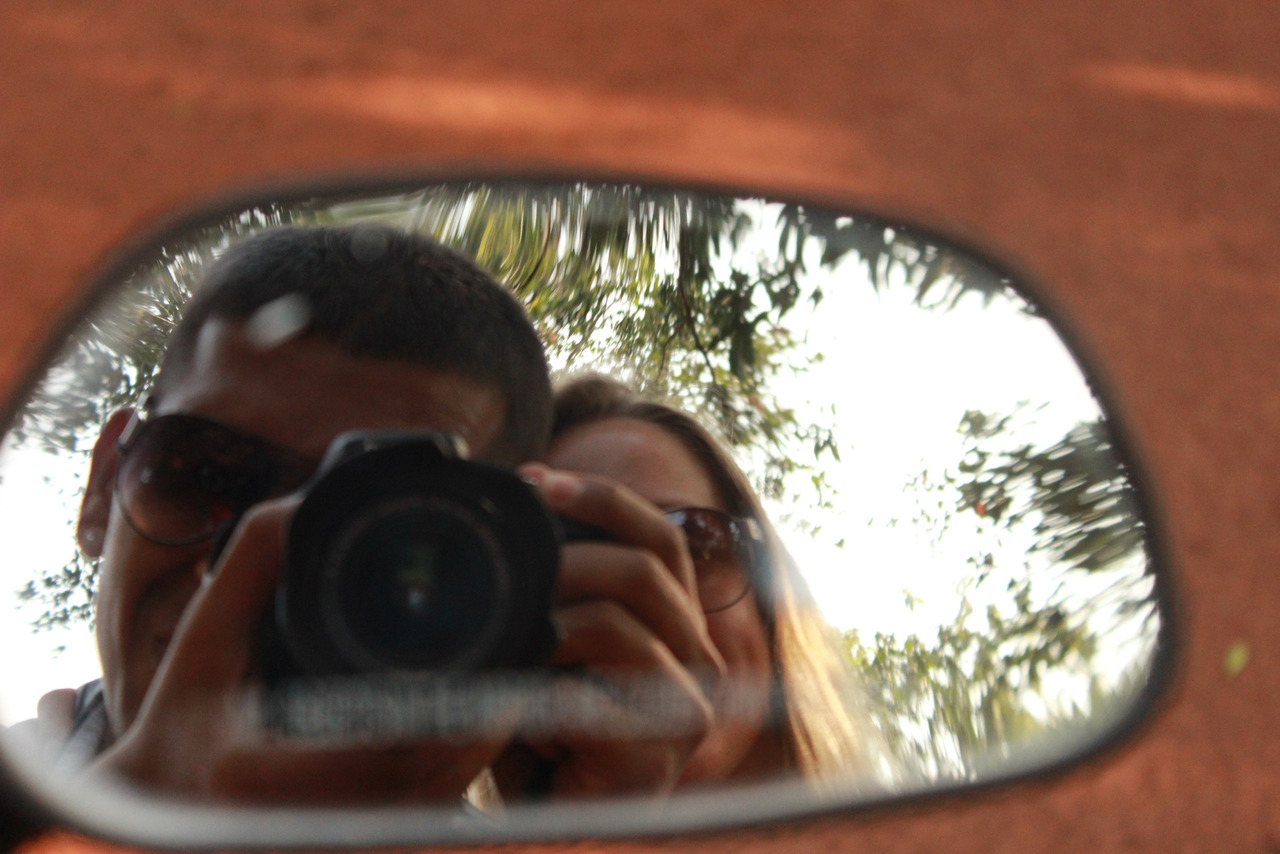
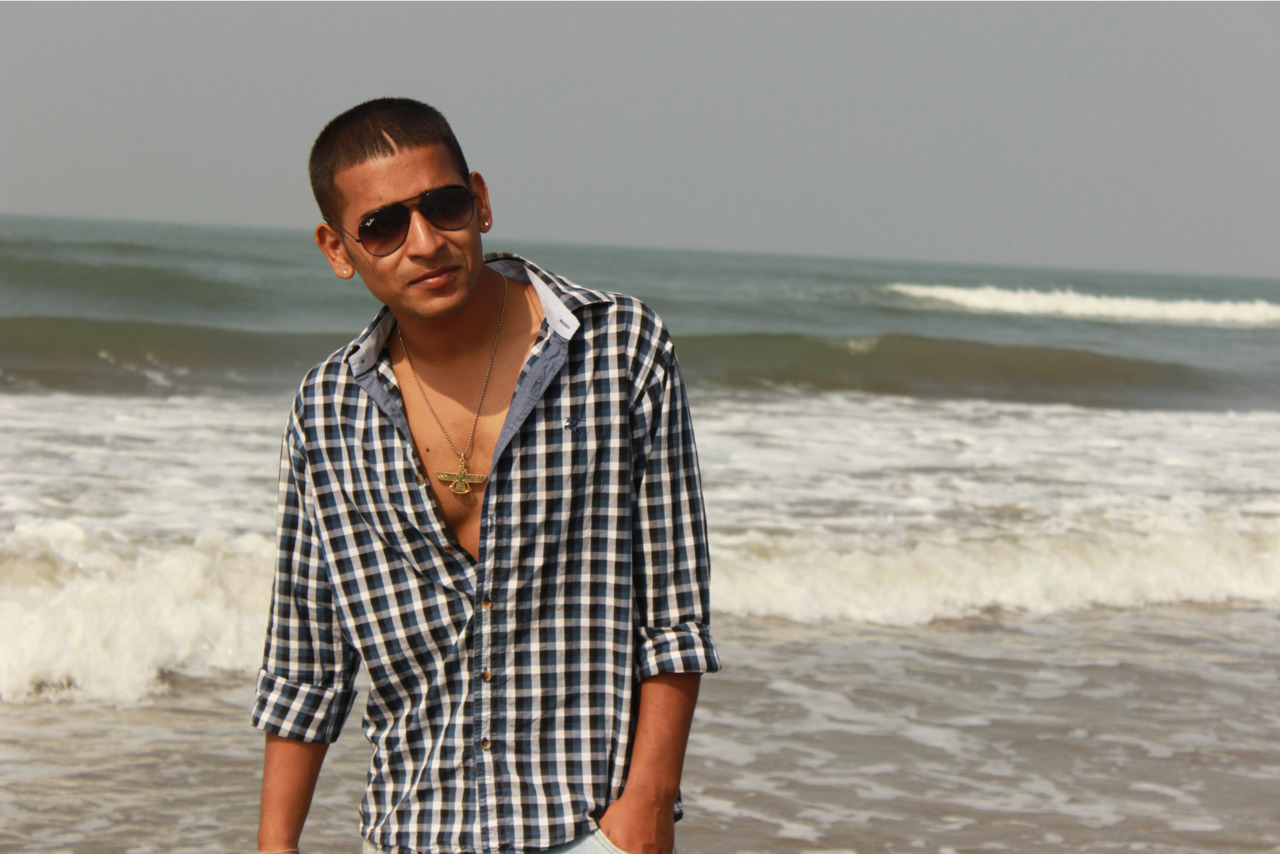
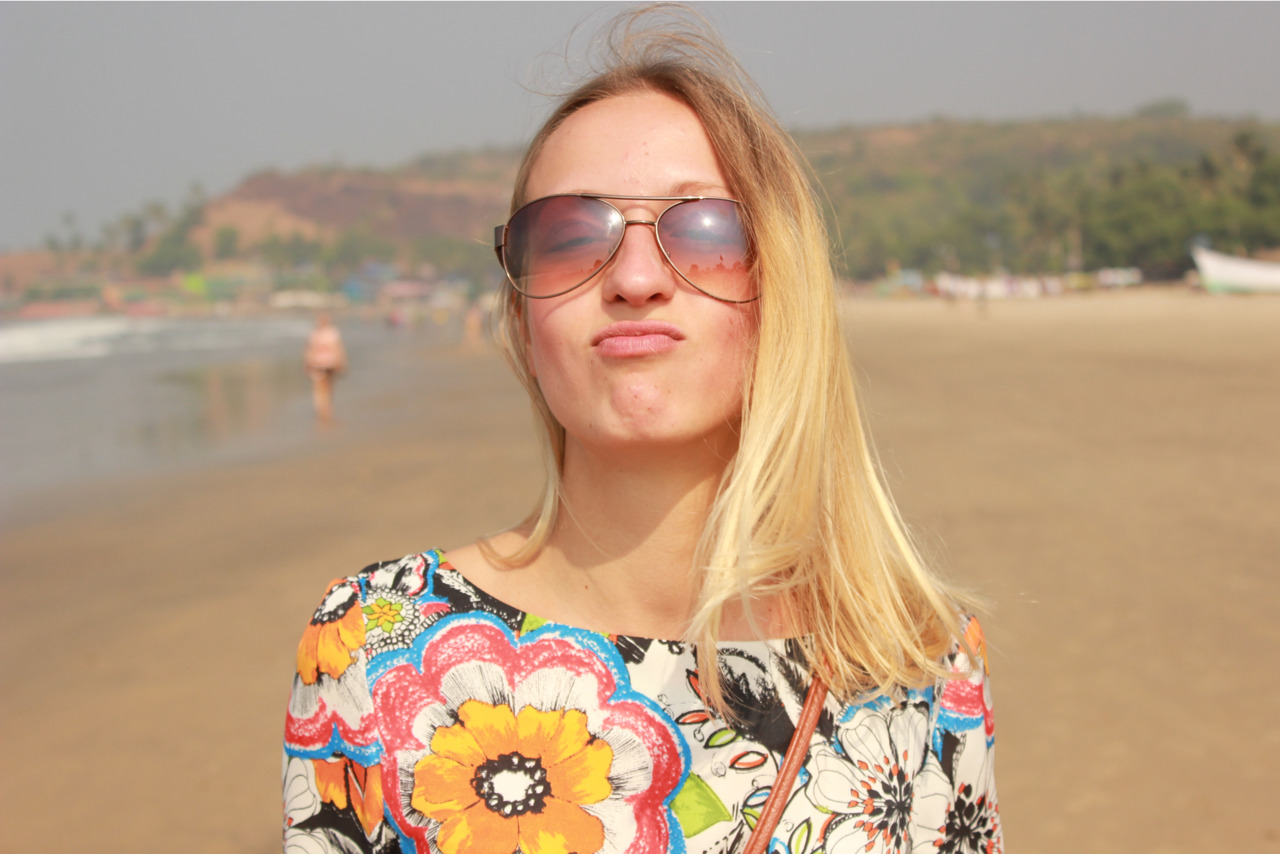
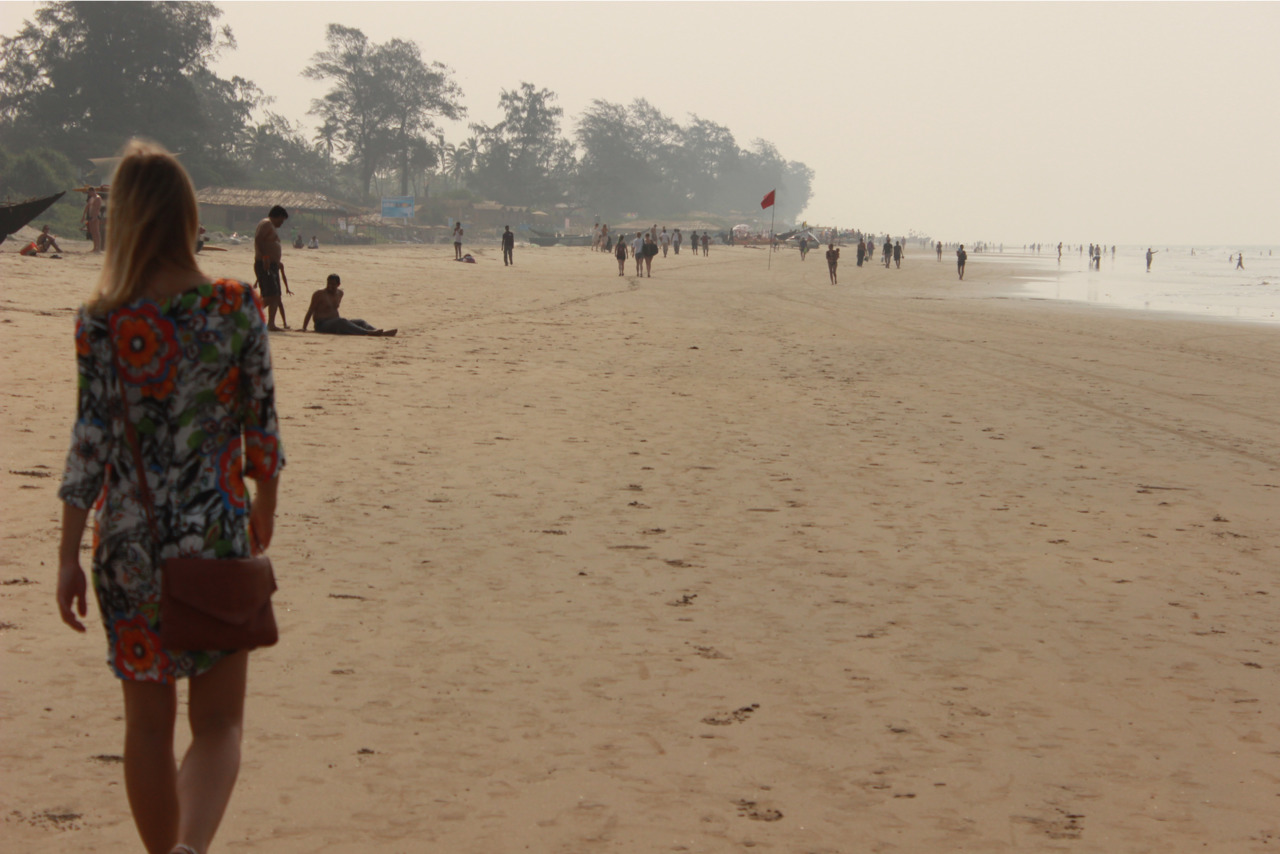
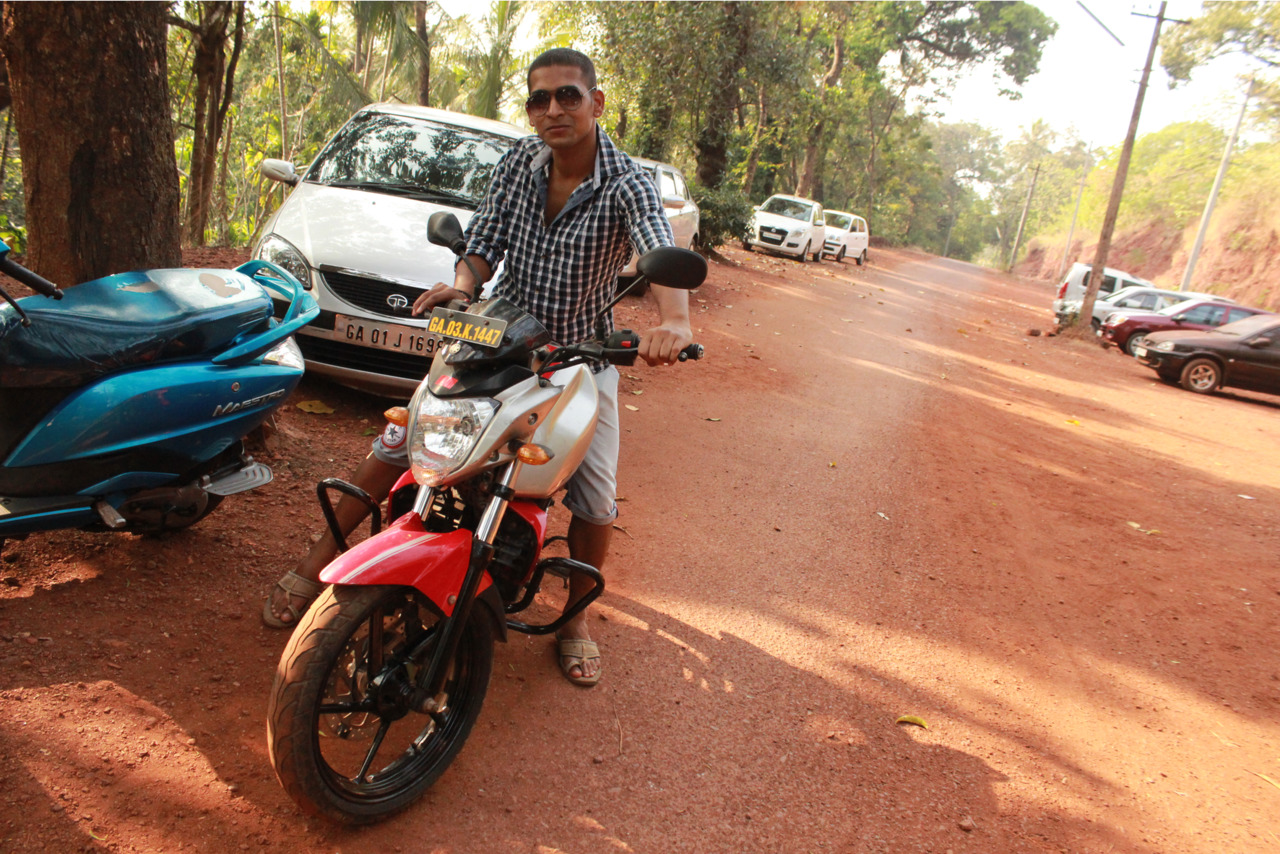
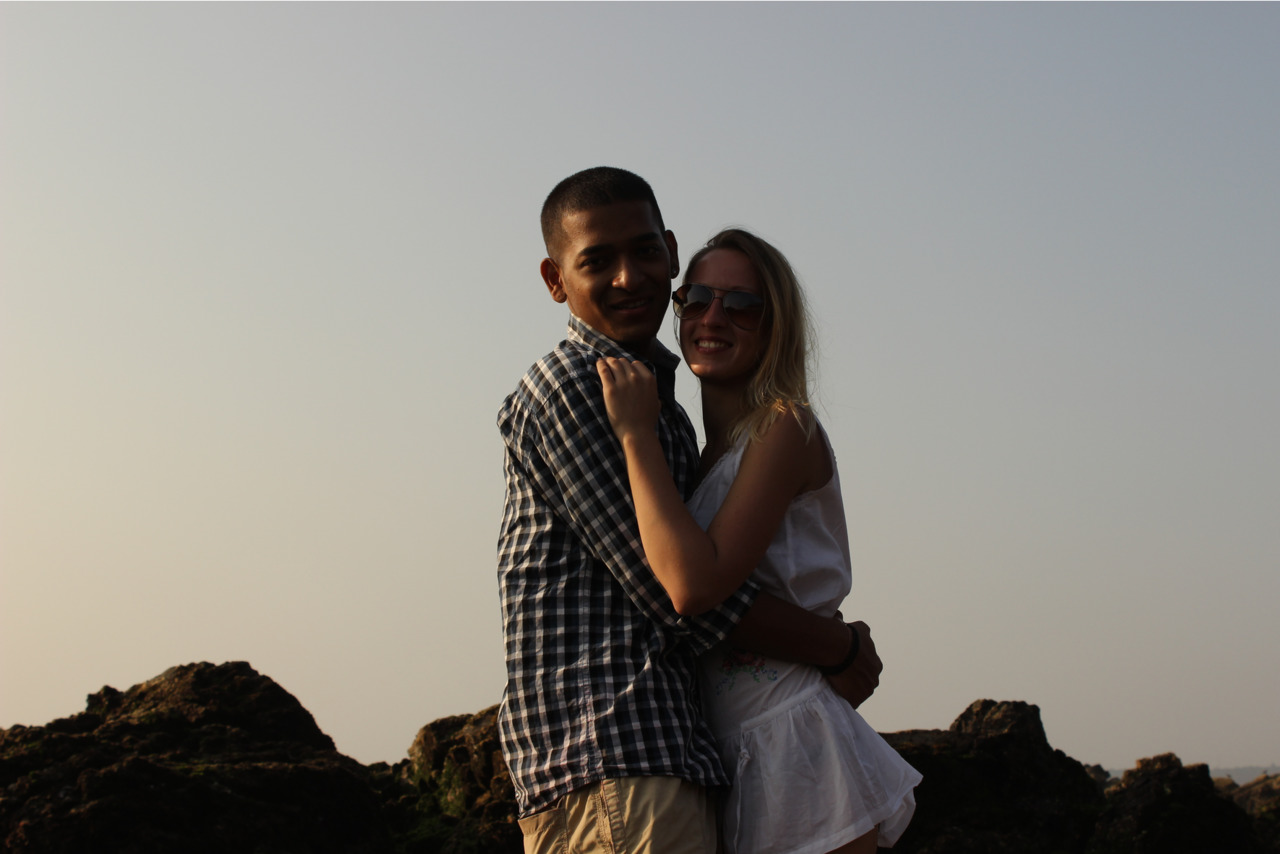
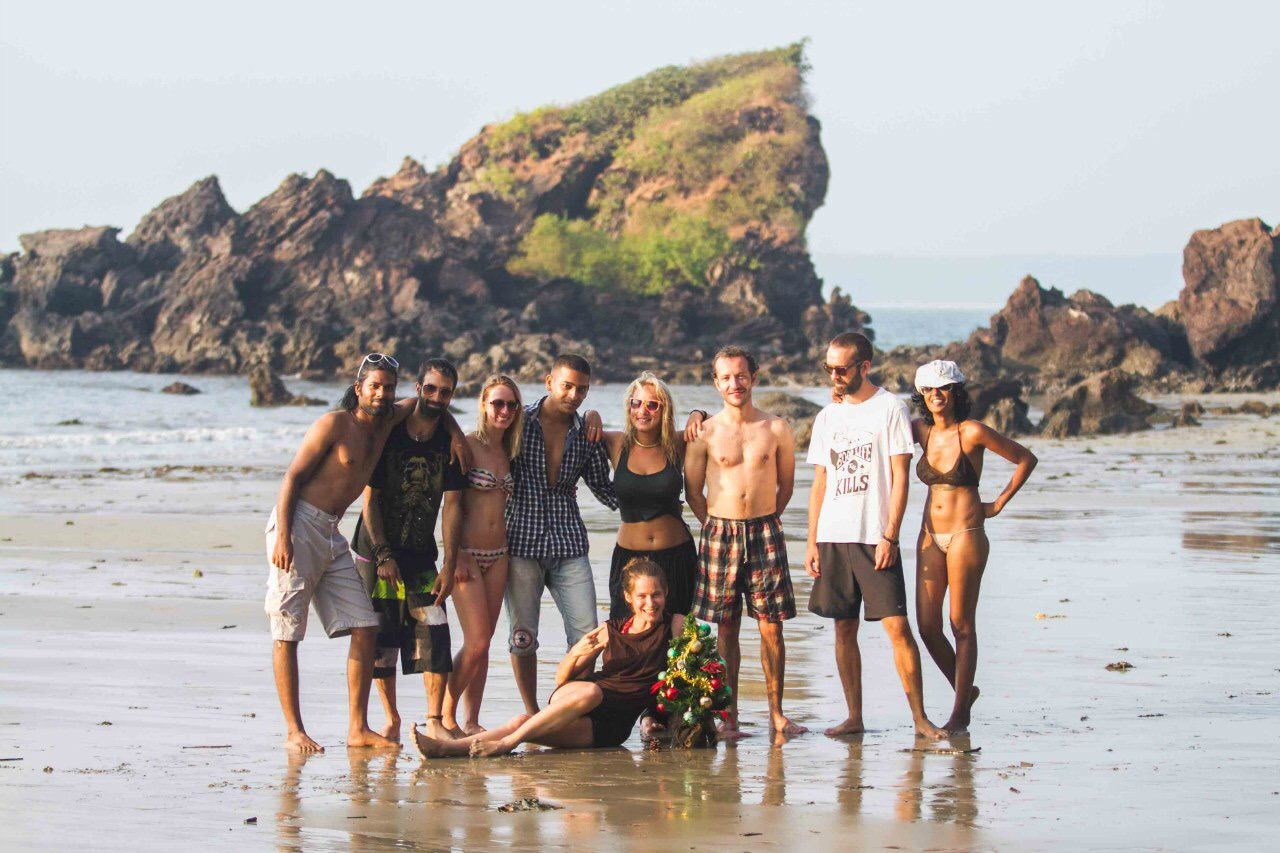
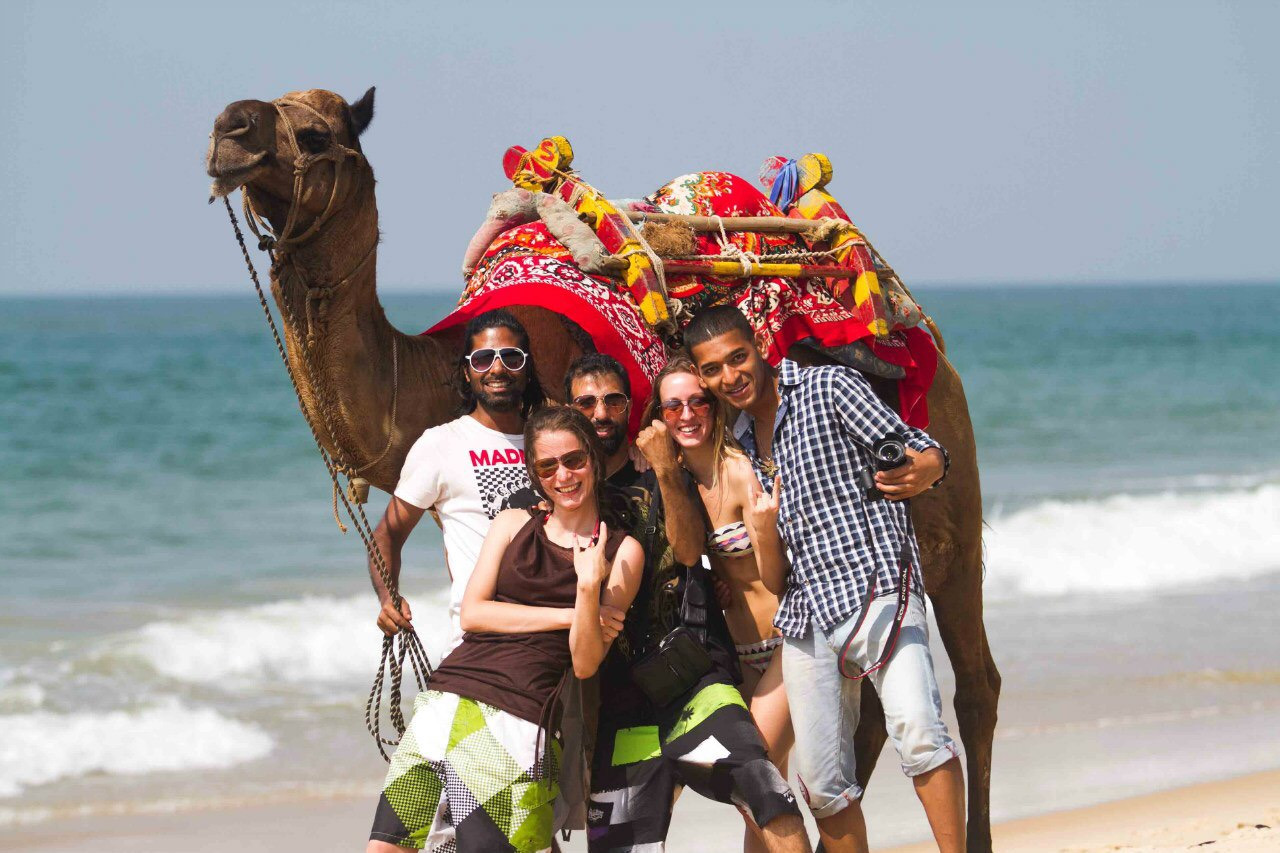
Once at the sunset Vishnu said that he had always wanted to get a tattoo, but it never worked out. So did I. Then we decided to get tattoos together. The next day Vishnu had the sun tattooed on his chest and I had a bird on the back of my neck. In that moment, I felt like I was a bird that finally grew wings. So we grew even closer. As we didn’t know if we’d see each other again, and where it would be, we lived every day as if it was as the last one, and our tattoos would remain with us forever as a memory of our encounter, the beautiful time of pure and sincere love.
On the last night in Goa Vishnu decided to be frank: he told what family he was from and why he had been silent about it for so long.
His family are hereditary Brahmins, who are the highest caste, and that they are not allowed to marry people from other castes, let alone foreigners. It’s a taboo. Vishnu’s father, a Professor at the Benares Hindu University in Varanasi at the Sanskrit Department, is a respected man in the city, a Keeper of traditions. It seems that he wouldn’t have even imagined that one of his sons would fall in love and decide to start a life bond with a Russian, and a Christian too.
Vishnu got his Secondary education in English at a private school, then he entered the faculty of Astrophysics, and also studied programming at the same time. We met when he was graduating from Benares University and had to apply for a master’s degree in Bangalore, move there and become a programmer. This was decided by his father, even though Vishnu himself wasn’t sure about this. None the less, in India the word of parents is law, and children always learn and work where their parents have decided to send them. Marriage for Hindus is possible only with their written consent and permission of their parents. It doesn’t work the same way as in Russia where all you need is to come the Registrar office with both of your passports.
I listened to Vishnu very attentively — everything he told me was so new, strange to me, and it was surprising to learn how closed their society actually was. Just to think of it, they can’t even let people of other castes in their house! He immediately warned me that the Indian relatives and parents will probably never be able to get to know me, but he assured me that he wants to live his life, and not one invented for him by someone. Even if that someone is his own father. He wanted to love and be with the one he loves.
Vishnu’s parents first saw each other at their wedding. In fact, they were arranged to get married without being asked for their consent. They, however, lived quite a happy life, they have three wonderful children. This is how marriages work in India, and those marriages that are not arranged but are based only on love — well, they only exist in films. Parents and relatives could not imagine that someone (for example, Vishnu) would come up with an idea to marry for love. In India, a wedding is a family reunion, once and for all. In most cases, no one is interested in the opinion of spouses-to-be: children are dependent on their parents financially, and going against the will of the family — this sounds more like a plot of a film.
Бесплатный фрагмент закончился.
Купите книгу, чтобы продолжить чтение.